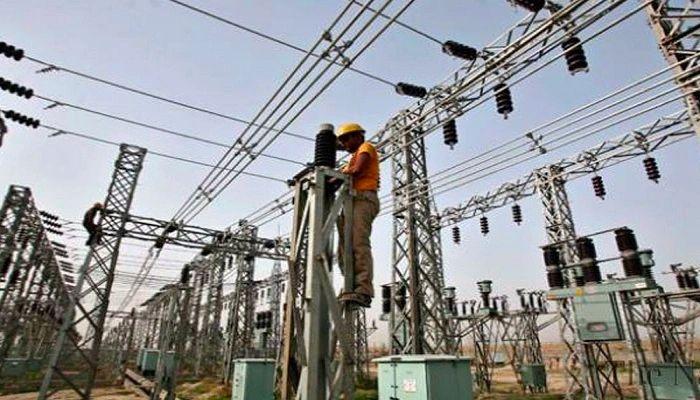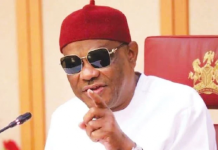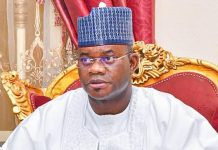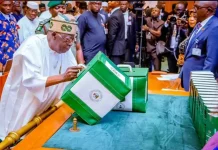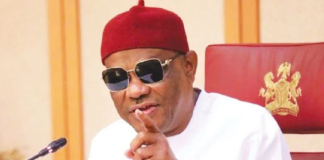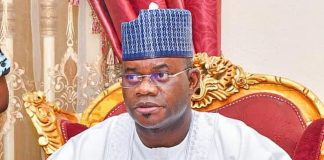🌿 Ruzu Non-Alcoholic Herbal Bitters
Ruzu Non-Alcoholic Herbal Bitters is a natural health supplement specially formulated to:
- ✅ Promote general wellness
- ✅ Detoxify the body
- ✅ Support the treatment of various ailments
Made from a powerful blend of 100% organic and medicinal herbs, Ruzu is completely alcohol-free, making it ideal for:
- 👪 All age groups
- 🌱 Health-conscious individuals
- 🌿 Anyone seeking non-alcoholic herbal remedies
Whether you're looking to boost your vitality, cleanse your system, or support healing the natural way, Ruzu Bitters offers a trusted herbal solution.
In order to allow state governments to invest in the production, transmission, and distribution of electricity in regions served by the national grid, former President Muhammadu Buhari signed the Fifth Constitution Alteration Bills into law prior to his departure in 2023. Among other things, this bill moved electricity from the Exclusive Legislative List to the Current Legislative List.
The Federal Government-owned Nigeria Rural Electrification Agency (REA), which has been supplying electricity to certain rural (and urban) regions, may become obsolete as a result, but it should allow state governments to supply energy to their citizens in the same manner that they supply water.
Development Agenda for Western Nigeria (DAWN) Commission Director General Seye Opeleye exclaimed, “No legislation since 1999 has excited Nigerian development stakeholders as much as this.”
Since the country’s power industry is now operated more decentralized, state governors are forced to take additional risks when establishing and managing their own energy businesses or enlisting private groups to do so in their states.
In comparison to President Buhari, President Bola Tinubu has escalated the situation. The Electricity Amendment Bill, 2023, which he signed, gives state governments the authority to control state-level electricity production, transmission, and distribution.
By encouraging private investment in the sector, giving states more authority over their energy infrastructure, further decentralizing the electrical sector, and improving the regularity of the nation’s electricity supply, Tinubu’s modest step is a huge leap.
The power markets of Edo, Ekiti, Enugu, Imo, Kogi, Ondo, and Oyo are already under the administration of seven states. It is anticipated that the states of Lagos, Niger, Ogun, and Plateau will finish their transformations by September 2025.
Of course, many who are skeptical of the breakthrough are immediately pointing out flaws. Strangely, some so-called industry experts also seem to have a very pessimistic perspective of the entire situation, while officials from the Nigerian Electricity Regulatory Commission (NERC) are voicing concerns about some states’ capacity to control their markets.
The more upbeat observers, however, stress the significance of NERC and state regulatory collaboration, staff and agency capacity improvement, and the latter’s financial preparedness to make proper investments.
Former Governor Tinubu’s bold decision to build a power plant in Lagos State is remembered with fondness, even though we dare hope that the Niger Dam power facility can be turned over to the Niger State government in accordance with established payment procedures.
In a $800 million agreement, he persuaded Enron to operate a 90 megawatt independent power plant in the first phase and a 5409 megawatt thermal plant in the long run. But as a democratically elected president of Nigeria, Olusegun Obasanjo’s military inclinations prevented him from fulfilling his duties, destroying this magnificent achievement.
Read Also: BANC Offers Roadmap to FG for Reducing Youth Migration and Unemployment
The centralized approach of President Obasanjo thwarted Governor Tinubu’s attempts to regularly supply electricity to the people and businesses residing in Lagos State.
State governors are now on the spot, though, because of the President’s recent actions. Given the increased funding they currently receive from the Federal Accounts Allocation Committee following the elimination of the gasoline subsidy, they might be unable to justify their failure to build or upgrade electricity infrastructure in their states.
Creating jobs is the most direct benefit of increasing the state’s capacity to produce electricity. Naturally, as a result of increased economic activity, the states will eventually receive more Internally Generated Revenue at that point.
Because of the model that divides generation, transmission, and distribution into silos, the electricity industry, which was partially privatized during the administration of President Goodluck Jonathan, is not performing well. It is also evident that the investors who purchased the legacy electricity companies lacked technical, managerial, and financial skills.
The new rule should be operationalized by allowing each market to have a single corporation that produces, transmits, and distributes its own electricity.
To regularly supply electricity within their geopolitical zones, states should pool their resources. For example, by combining their resources to form a massive electrical company, the states of the Southwest could benefit from economies of scale.
In order to keep state governments accountable for the supply of electricity, we urge the media and civil society organizations to closely monitor the new rules being implemented.

